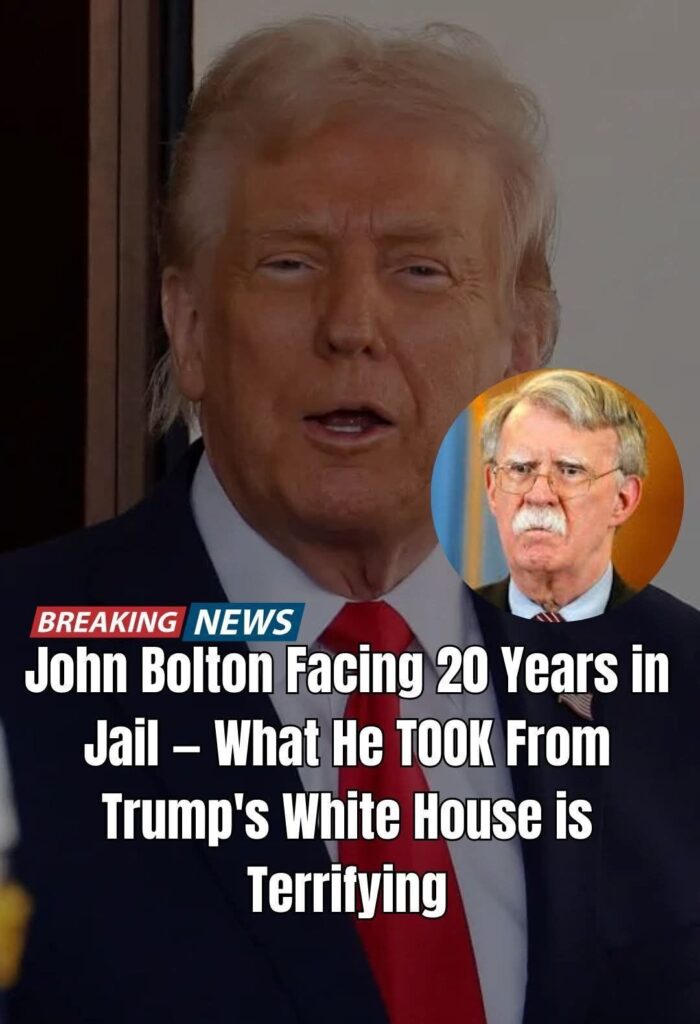
Federal Investigators Seize Classified Documents in John Bolton Probe
Federal authorities discovered documents marked “secret” and “confidential” at the downtown Washington, D.C. office of former National Security Adviser John Bolton, according to court filings released Tuesday.
The discovery is part of an ongoing Justice Department investigation into whether Bolton mishandled national defense information during and after his government service. The August 22 search, authorized by U.S. Magistrate Judge Moxila Upadhyaya, uncovered “travel memo documents with pages labeled secret” alongside confidential records on the U.S. mission to the United Nations, strategic communications plans, and materials referencing weapons of mass destruction. FBI agents also seized laptops and other electronic devices, though the contents of those devices remain undisclosed in public filings.
Court documents confirm that federal investigators were probing potential Espionage Act violations, including the unauthorized retention or loss of national defense information. While the exact number of documents recovered was not specified, the inventory indicates multiple folders with classified markings. In the U.S. system, “secret” is the middle tier of classification, signaling information whose disclosure could cause serious harm to national security, while “confidential” is the lowest level, for records whose release could cause some harm.
A concurrent search at Bolton’s Bethesda, Maryland, residence did not uncover classified materials, though computers and electronics were seized there as well.
The affidavit supporting the warrants, filed August 21, cited concerns that Bolton may have mishandled information later exploited by a foreign intelligence service, including emails sent during his White House tenure. Court filings note that Bolton’s AOL email account was hacked, though details about the intrusion and the foreign actor involved have not been disclosed.
The renewed investigation echoes controversies that arose after Bolton’s 2020 memoir, The Room Where It Happened. The Trump administration had sued to block the book’s release, claiming it contained classified information. At the time, a federal judge noted Bolton’s conduct could potentially be criminal, but the Justice Department under President Biden dropped the lawsuit and declined to pursue charges. It is unclear what prompted the latest probe, though parallels to former President Trump’s prosecution for retaining classified records at Mar-a-Lago have drawn attention.
Bolton’s attorney, Abbe Lowell, has insisted there was no wrongdoing. He emphasized that many of the materials were cleared during pre-publication review of Bolton’s memoir and that some date back to Bolton’s service under President George W. Bush.
“These materials, many of which were previously approved during the pre-publication review for Ambassador Bolton’s book, were reviewed and closed years ago,” Lowell said. “Some documents stretch back more than two decades, from his time as Under Secretary of State and U.S. Ambassador to the United Nations. An objective review would show nothing improper in his record-keeping.”
The Justice Department, however, maintains that even older classified materials pose ongoing risks. Classified designations do not expire automatically, and records related to nuclear programs or weapons of mass destruction remain highly sensitive, regardless of age.
The political dimension of the investigation has also drawn scrutiny. Bolton, once one of Trump’s most trusted advisers, became one of his most outspoken critics after leaving the White House in 2019. Trump has repeatedly called Bolton a “warmonger” and accused him of undermining U.S. interests abroad.
Redacted versions of the search warrants, affidavits, and inventories were released after media organizations petitioned for access, highlighting the public interest in understanding how national security cases are handled.
The stakes are high: if Bolton knowingly retained classified records outside secure channels, he could face felony charges similar to those brought against Trump.
For now, Bolton maintains the documents are innocuous remnants of a four-decade government career. Whether the courts will see it the same way remains an open question, one that could test the boundaries of accountability for senior officials entrusted with the nation’s most sensitive secrets.


